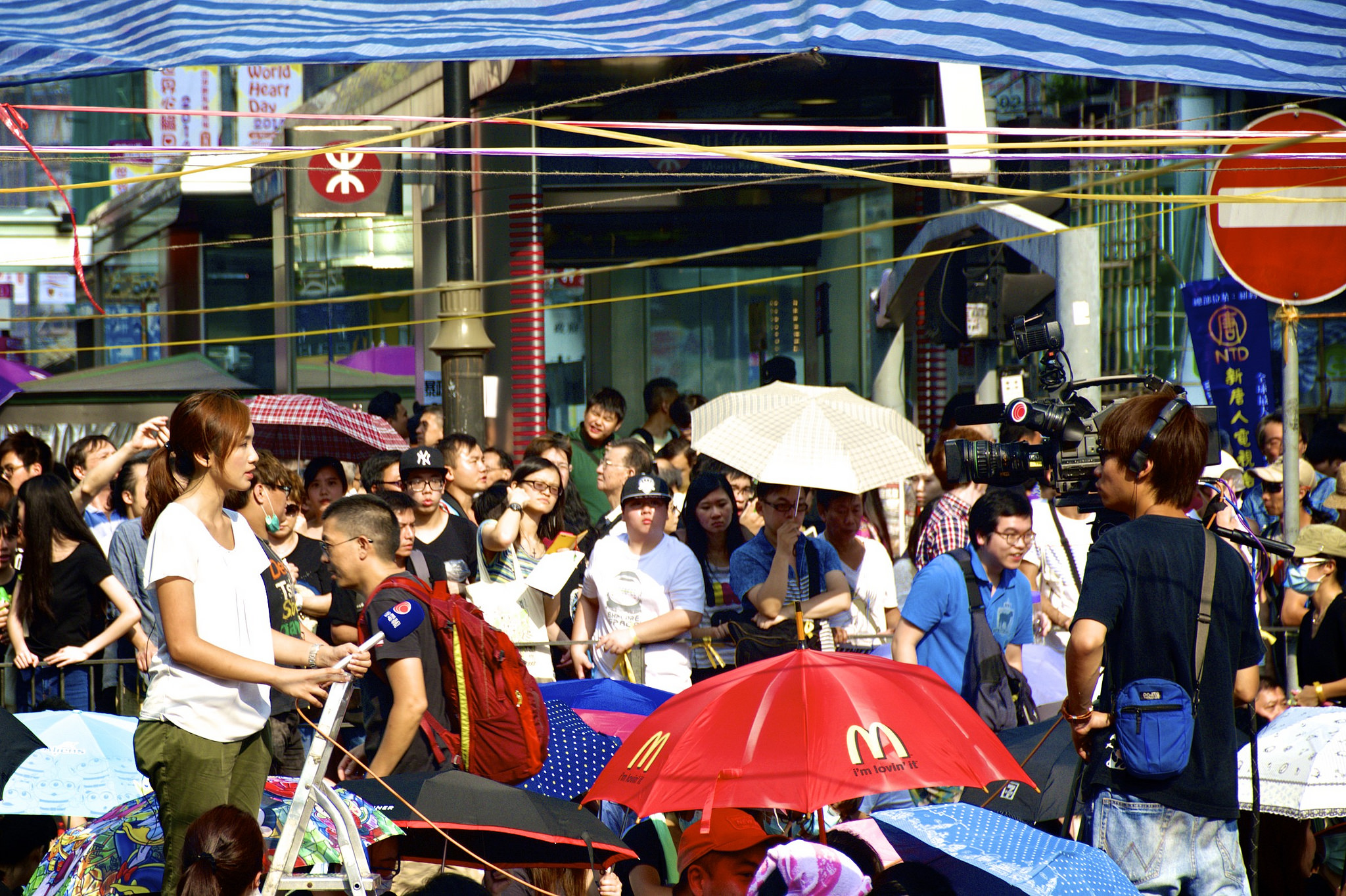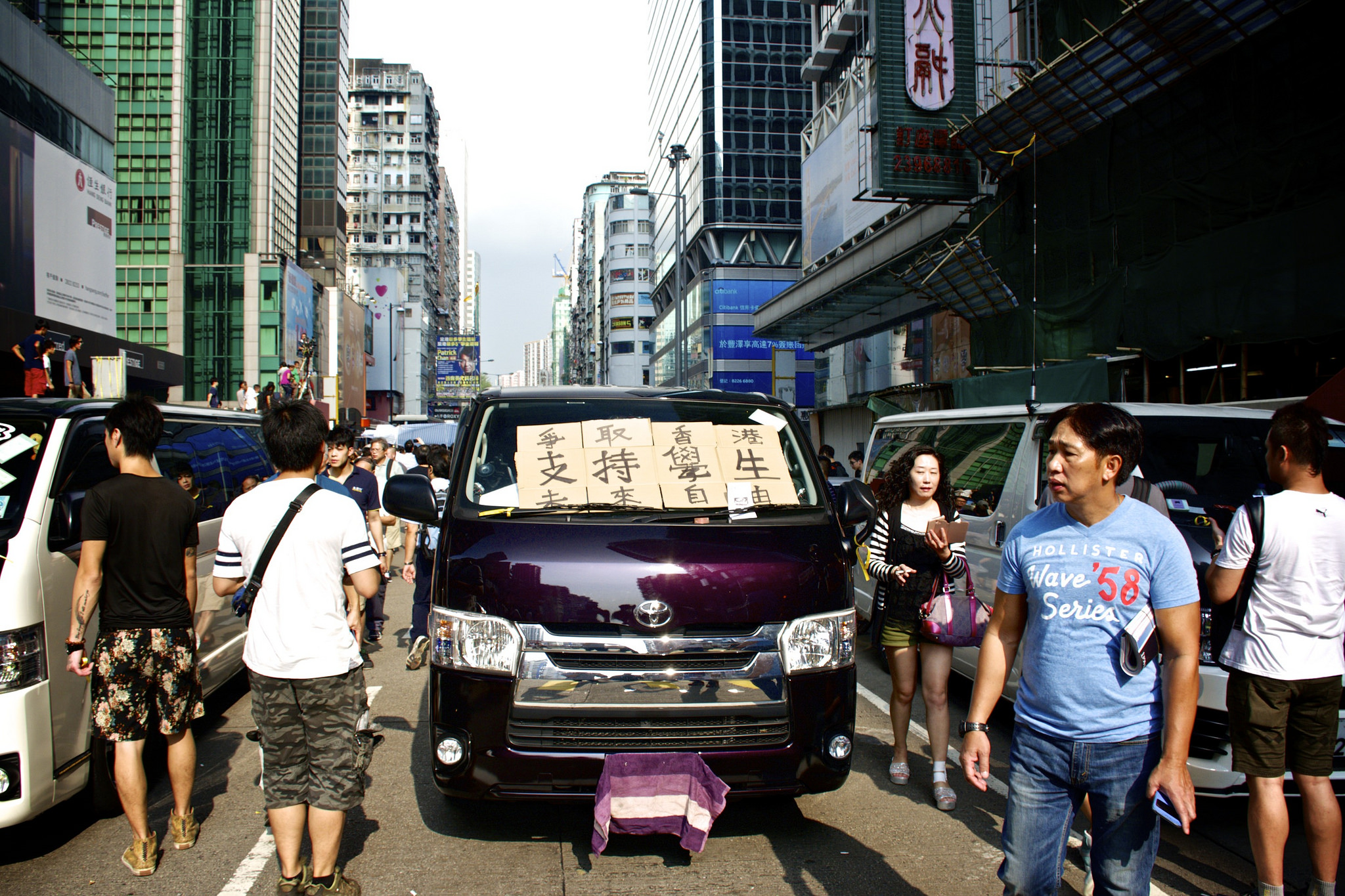On Democracy and Context with Larry Au
by Sam Sussman
語言:
English
Photo Credit: Larry Au
Hong Kong’s Occupy Central pro-democracy movement has drawn international media attention for both the optimism of its leaders and the violent vehemence with which the Chinese Communist Party has cracked down, creating arguably the most embarrassing political moment for Beijing since Tiananmen Square in 1989. Much media coverage has tended to treat the movement as spontaneous, while the CCP has dismissed it as western-organized propaganda.
New Bloom UK Editor Sam Sussman sat down with Hong Kong social movements researcher Larry Au to chat about the specifically Hong Kongese political experiences and traditions from which the movement developed its organizational and rhetorical strength. Larry is an M.Sc in Global Governance and Diplomacy at the University of Oxford, and previously researched Hong Kong social movements at Brown.
Sam Sussman: You were researching 21st Century Hong Kong social movements at Brown this spring, after Occupy Central was announced but well before it grew to the impressive scale we’ve seen. Why do you think Occupy Central grew so quickly?
Larry Au: The movement was announced in January, but didn’t take off until the CCP released its controversial White Paper on Hong Kong in mid-June. Hong Kongers perceived the CCP to be exerting more control than usual, with new language such as “comprehensive jurisdiction,” which bothered people by seeming antithetical to the “one country, two systems” policy that guards Hong Kong’s rights. The paper also called Hong Kong judges “administrators,” implying that they had a legal obligation to back the government’s agenda, instead of being independently faithful to the law.
 Cable television reporting from Mong Kok. Photo credit: Larry Au
Cable television reporting from Mong Kok. Photo credit: Larry Au
Every year since it became a Special Autonomous Region of China, Hong Kong has had a large, plural, pro-democracy movement on July 1. This year’s was the largest since 2003. Then, on August 31, the CCP released its ruling against open elections in Hong Kong. Even some pro-Beijingers were surprised by how restrictive the ruling was, which only strengthened Occupy Central’s momentum. Then the movement really took off with the student boycotts, between September 22 and 26. Students organized lectures in public parks instead of going to class, listening to professors and peers talk about everything from feminist critiques of democracy to mathematics and income inequality. And throughout, the movement continued to grow, and continued to gain international media attention.
SS: When the Sunflower Movement broke out in Taiwan earlier this year, many people remarked on how its success largely grew out of the organizational infrastructure and political rhetoric developed during the Wild Strawberry movement and other earlier campaigns. Can you talk about the corollaries in Hong Kong?
LA: The most important tradition to understand is the July 1 protest. The march is organized by the Civil Human Rights Front, which brings together everyone from Christian minorities, LGBT Hong Kongers, ethnic minorities, and political parties with pro-democracy agendas. It’s a very pluralistic coalition of forty to fifty NGOs with diverse interests, but a shared belief in open government. Activists exchange ideas, which is something that Occupy Central has built upon. OC’s use of pamphlets and loudspeakers comes out of the July 1 marches. And some of these demonstrations can get quite big. In 2003, more than 500,000 participated in the July 1 pro-democracy march to protest against the implementation of a very rigid National Security law.
Hong Kongers also have a rich tradition of political participation around other issues, as well. Some instances in the past decade include large demonstrations to preserver Queen’s Pier, a hallmark of the colonial period; against the construction of high-speed rail to link Hong Kong to Mainland China; on national education policy, in 2012-2013; and against media regulations. Some of these movements have brought more than 100,000 people to the streets. These may seem like very different issues, but they are connected by concerns with wealth inequality, government accountability, and Hong Kong identity. We have a rich local tradition of these discourses that can’t be washed away simply because it bears similarity to other political cultures.
SS: Let’s talk about how widely shared that tradition is, because the criticism of this movement has been that it’s organized by students who are out of touch with the rest of Hong Kongers when it comes to bread-and-butter issues.
LA: It’s wrong to homogenize who is participating. It’s hard to tell exactly, but maybe about half are students. There are also a large number of social workers, teachers, elderly people, academics, even some pop stars. As for the students themselves, they have very diverse backgrounds. Many come from working class families. It’s wrong to say that only privileged students who have never had to work care about the future of democracy in Hong Kong.
SS: What about a second criticism the CCP has consistently made, that as we can tell from its name, Occupy Central is primarily about western ideas?
 Vans parked on the road to prevent police from getting too close to occupiers. Photo credit: Larry Au
Vans parked on the road to prevent police from getting too close to occupiers. Photo credit: Larry Au
LA: This is a false and dangerous dichotomy. First of all, the discourses and traditions mobilized in Hong Kong are actually quite local. Ideas of wealth inequality, Hong Kong identity, government accountability—these come out of Hong Kongers’ experience, and relate to our everyday lives. It is wrong to say that they do not have a basis in our lives or our culture.
Second, there is a danger to otherizing these protests in this way, because it justifies violence. Several foreign journalists and Indian protesters have been beaten or taunted because they are thought of as foreign agents. So this idea of painting the movement as unpatriotic is very, very dangerous. It’s also simply wrong, because the protesters have been adamant about how much they love Hong Kong, and care about its future.
Finally, there is a third very serious problem with this criticism, and that is: what does it even mean for something to be a ‘western’ idea? Non-violent protest is not an exclusively western strategy. We all know it was used in apartheid South Africa, in Gandhi’s India. These ideas don’t belong to any particular culture. Why should we pretend that they do?



